
i

The UAE and the broader Arab region have specific cultural values that can sometimes conflict with global film narratives, making casting a challenge.
Funding for Arab films has slowed due to economic crises in regions that traditionally financed Arab cinema, impacting casting budgets and choices.

The growth of Arab cinema has led to tighter production schedules, making the casting process more rushed and challenging.
While cities are working towards becoming hubs for the Arab film industry, there's still a lack of infrastructure dedicated to casting and talent management.

Emerging talents in the region often have limited exposure and opportunities to showcase their skills on a global stage.
Ensuring accurate and diverse cultural representation in films can be a challenge, especially when casting for roles that require specific regional nuances.

Filming in the UAE and other Arab countries sometimes comes with regulatory challenges, impacting casting decisions, especially for international projects.
While there's no shortage of talent, there might be a gap in skills and training required for professional film casting.

Casting for roles that require proficiency in both Arabic and other languages can be challenging, especially for films targeting a global audience.
CMARIX began with a thorough analysis of FilmCast's requirements, understanding the challenges of the film casting industry in the UAE and the broader Arab region. This ensured that the platform was tailored to address specific regional challenges.
Keeping in mind the diverse user base, including talents, agencies, and directors, CMARIX crafted a user-centric design that offers an intuitive experience for all user types.
Recognizing the linguistic diversity of the region, CMARIX integrated bilingual support, allowing users to switch between English and Arabic seamlessly.
To cater to users on various devices, CMARIX ensured that the FilmCast platform was responsive, providing a consistent experience across desktops, tablets, and mobiles.
Based on the project's requirements, CMARIX selected a robust technical stack that ensured the platform's scalability, security, and performance.
CMARIX integrated various third-party services to enhance the platform's functionality, from payment gateways to social media integrations.
Adopting an agile approach, CMARIX worked in iterative cycles, allowing for regular feedback from FilmCast and ensuring that the platform evolved in alignment with the project's vision.
CMARIX conducted rigorous testing, from unit tests to user acceptance tests, ensuring that the platform was bug-free and met the highest quality standards.
Post-development, CMARIX provided training to FilmCast's team, ensuring they could manage and operate the platform efficiently. They also offered ongoing support to address any technical challenges.
CMARIX established a feedback loop with FilmCast, ensuring that any changes or enhancements could be quickly integrated into the platform.
Understanding the importance of user data, CMARIX implemented stringent security measures, ensuring that the platform was resilient against potential threats.

Leveraging Laravel's modular package system, CMARIX designed a system that's easy to scale and enhance, allowing for the addition of new features without disrupting existing functionalities.
CMARIX utilized Laravel's capabilities to develop RESTful APIs, ensuring seamless communication between the frontend and backend, and facilitating third-party integrations.
With Laravel's Eloquent ORM, CMARIX ensured efficient database interactions, allowing for expressive database querying and data manipulation in the MySQL database.
CMARIX utilized Laravel's Blade templating engine for dynamic content rendering, ensuring that the website remains responsive and user-friendly.
Leveraging Laravel's built-in authentication and authorization features, CMARIX implemented a secure user registration and login system, along with role-based access controls.
To maintain data integrity, CMARIX integrated Laravel's validation methods, ensuring that only valid and sanitized data gets stored in the MySQL database.
To enhance the platform's performance, CMARIX implemented caching using Laravel's caching system, reducing load times and ensuring a smooth user experience.
Given the bilingual nature of the platform, CMARIX utilized Laravel's localization features to provide multi-language support, allowing users to switch between English and Arabic.
CMARIX set up scheduled tasks using Laravel's task scheduler, automating various backend processes like sending out notifications, reminders, or cleaning up old data.
Using Laravel's migration system, CMARIX ensured that changes to the MySQL database structure were version-controlled and could be easily managed across different development environments.
CMARIX integrated Laravel's error and exception handling mechanisms, ensuring that users receive appropriate feedback during any unexpected system behaviors.
CMARIX utilized middleware for filtering HTTP requests, ensuring functionalities like authentication checks or data sanitization were executed before processing the request further.
Leveraging Laravel's testing suite, CMARIX conducted unit and feature tests, ensuring the platform's robustness and reliability.

Developed using Laravel's Blade templating engine, this layer focuses on user interface and experience, ensuring dynamic content rendering and responsive design.
Business Logic Layer (Backend):The heart of the application, where all the business rules, logic, and computations are processed. Laravel's robust MVC (Model-View-Controller) pattern is employed here.
Data Access Layer:With MySQL as the database, this layer focuses on data persistence. Laravel's Eloquent ORM ensures efficient, expressive, and secure database interactions.
CMARIX utilized Laravel's middleware for filtering HTTP requests. As a request enters the application, it passes through various middleware (e.g., authentication checks) before reaching the final route or controller.
These are the central place of all Laravel application bootstrapping. CMARIX would have used service providers to bootstrap services like authentication, caching, and others, ensuring a modular and organized codebase.

Laravel's service container, an advanced tool for managing class dependencies and performing dependency injection, was employed. This ensures that the system components remain loosely coupled and highly cohesive.
CMARIX leveraged Laravel's powerful routing system to define the application's URL endpoints and their associated controllers/actions, ensuring a clear and logical flow.
FilmCast's platform would likely integrate with various Laravel ecosystem tools like Laravel Horizon (for queue management), Laravel Du (for browser testing), and Laravel Echo (for real-time event broadcasting).
Laravel's built-in security features, such as CSRF (Cross-Site Request Forgery) protection, password hashing, and SQL injection prevention, were integrated to ensure the platform's resilience against potential threats.

Given the unique requirements of FilmCast, CMARIX might have developed custom Laravel packages or utilized existing ones to extend the platform's functionalities.
Utilizing Laravel's environment configuration, CMARIX ensured that the platform could adapt to different environments (development, staging, production) seamlessly.
To handle various events (e.g., a new user registration), CMARIX would have employed Laravel's event and listener system, allowing for modular and asynchronous handling of various application events.
With MySQL as the backbone, CMARIX would have designed a normalized database schema, ensuring data integrity, efficiency, and scalability.

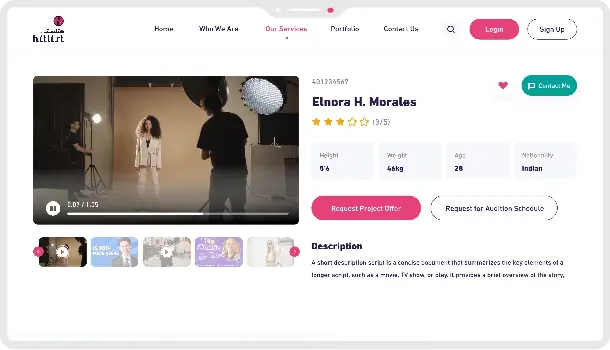
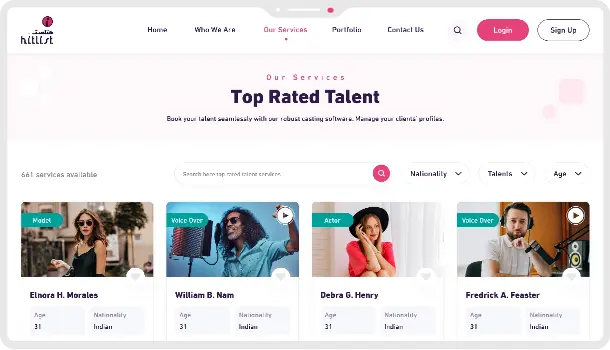
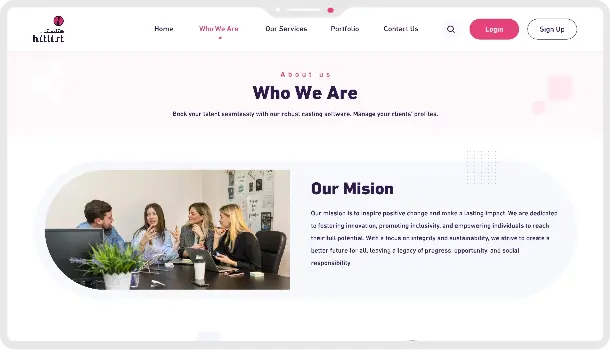
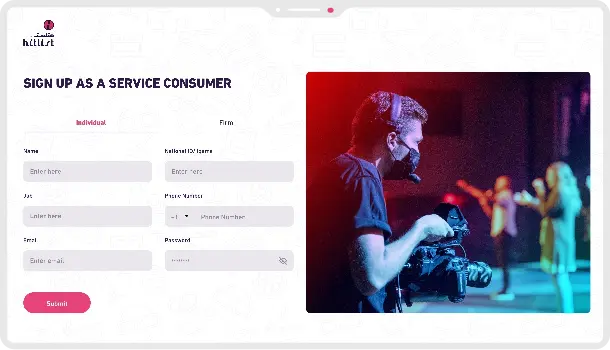
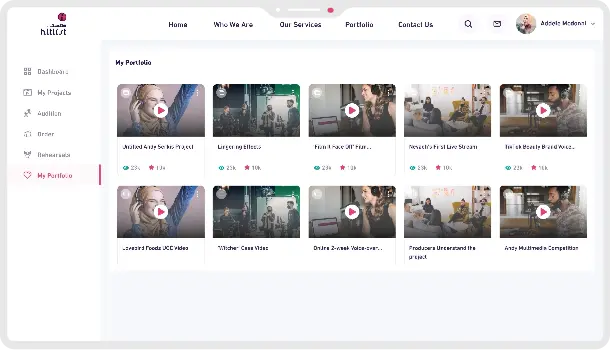
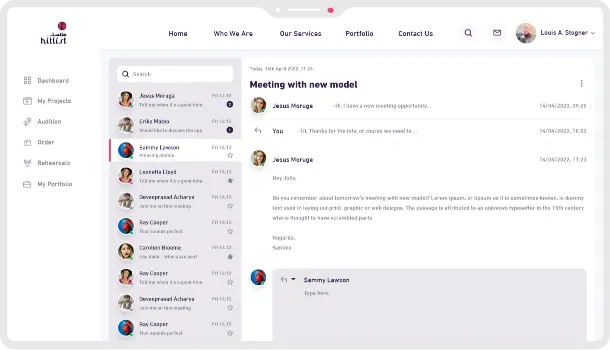
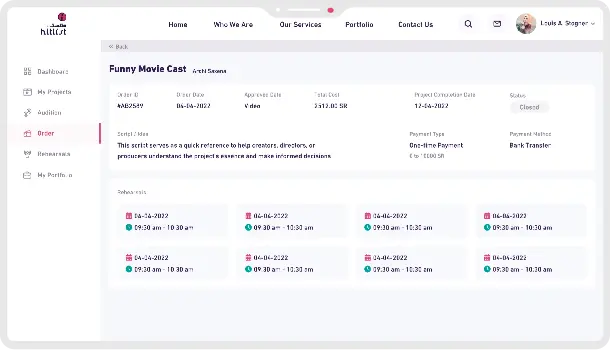










Your unique concepts will be crafted into a remarkable end result by our team.